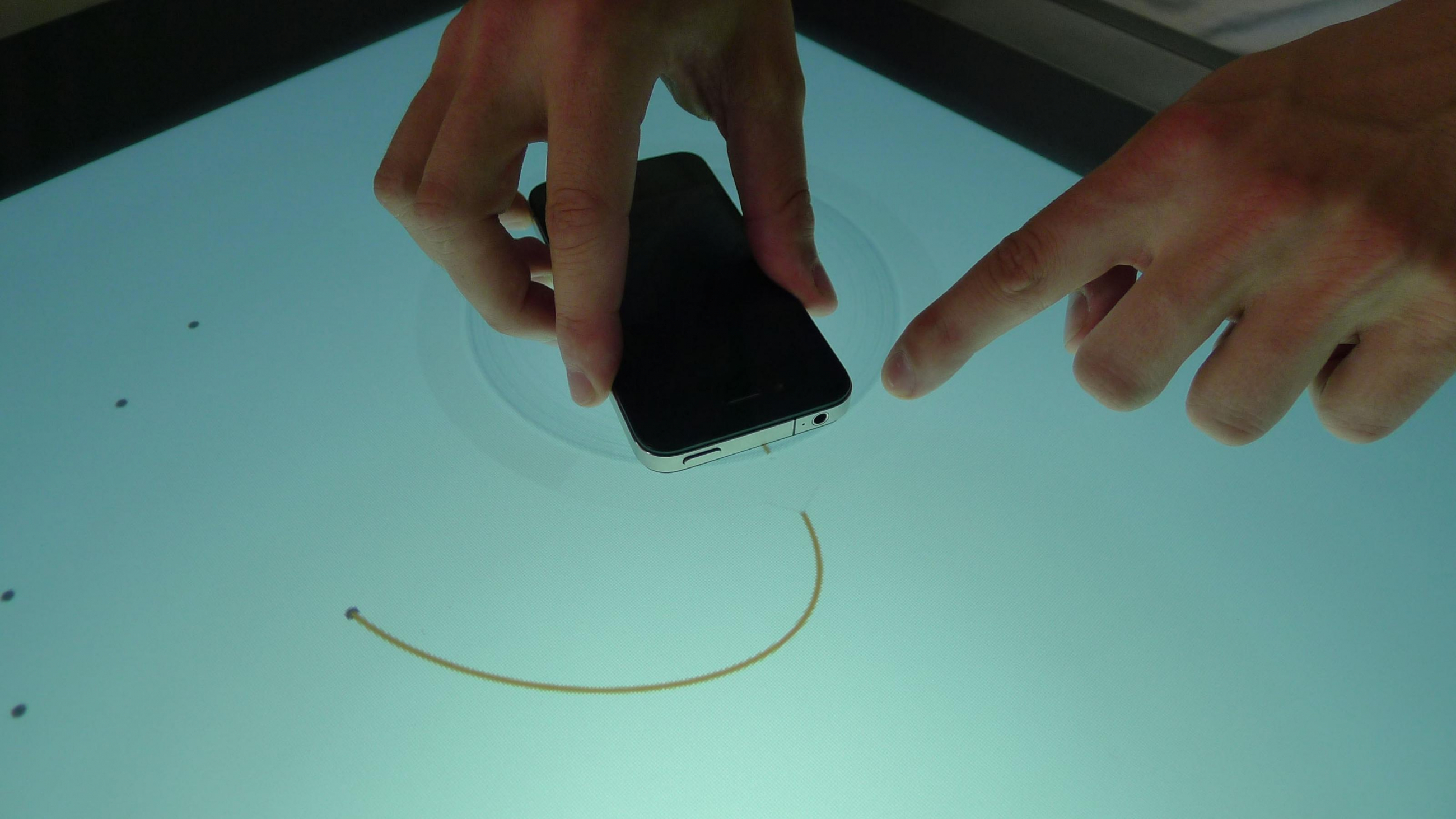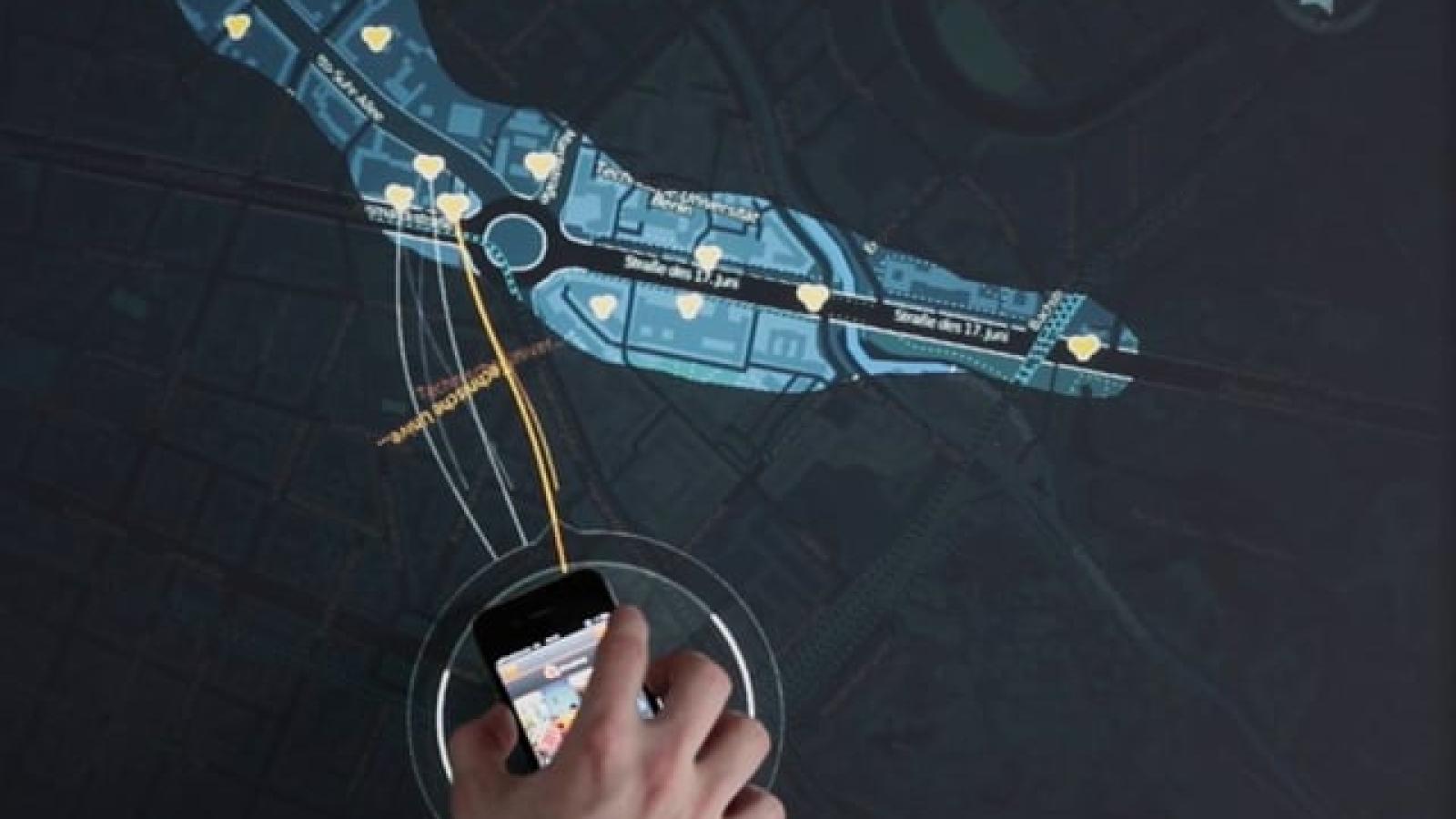LiquiData
LiquiData is a multi-touch table application that allows users to visualise their movement profile stored in their smartphone and add photos and comments to public places.

LiquiData is a multi-touch table application that allows users to visualise their movement profile stored in their smartphone and to add photos and comments to public places. The user-generated content serves as a recommendation system that can also be explored by users who do not own a smartphone. Potential places of use for the table can be highly frequented spaces where people from different regions meet. In hotel lobbies, for example, it can be used to offer hotel guests an explorative recommendation system for the surroundings.
The project was developed as part of the course "Graspable Maps / 2.135 Advanced Media" in the summer semester 2011 under the supervision of Till Nagel.
During the project discovery period, an extended discussion occurred about the storage and use of smartphone users' location data, triggered by the publication of Peter Warden and Alasdair Allan. Warden and Allan had found a file in the iPhone that tracks the user's movement profile and stores it indefinitely. In Germany in particular, this once again sparked a discussion about privacy and self-determination. Instead of generating new negative scenarios, we tried to process the collected information in a positive way for the user. The result was a rating and recommendation system that helps the user to gain more orientation, especially in new cities, and to compare his mental map with a real map.
First and foremost, LiquiData is a research project. On the one hand, new interaction possibilities are being tested, such as using the smartphone as an input medium for images and texts, as well as navigation through physical interaction with the smartphone. On the other hand, the project questions our current handling of accumulated data and its publication. LiquiData plays with the paradox of dealing with our privacy on the one hand and the use of social-media/web 2.0 on the other. People use the new technologies and services, but often do not understand the technical possibilities behind them, act naively, are blinded by the functionality and forget their desire to protect their privacy.
Starting with the consolidated.db, we considered additional personal data to enhance the system. Again, we experimented early on to see what data could be extracted from the smartphone alone.
The photos stored on the smartphone, have meta-information that provides geo-information in addition to time. Due to the large amount of personalised data available on the web, we came up with the idea of including social networks in the concept early on. APIs offer interfaces for aggregating the data. Facebook and Google+ seemed very suitable for us to get in touch with people via our multitouch application. The awareness and usage of those who would use the multitouch application was very high. We also considered data from Twitter, Foursquare, Flickr, Picasso for possible use. The possibilities seemed almost endless. Due to our strongly iterative way of working, we finally decided to limit the data to geo-information, photos and comments.
Project participants
Students
- David Ikuye
- Pierre La Baume
- Christopher Pietsch
- Gunnar Friedrich
- Luis Grass
